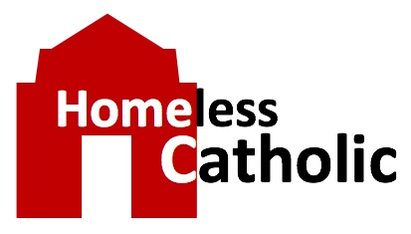Our Daily Bread
I'm not particularly fond of scales, at least not the one in my bathroom; since, most of the time, it provides me with information that I would just as soon not know.
We speak today about people living from paycheck to paycheck. Here we are talking about people living payday to payday. It was literally a situation of no work, no food---not yesterday's leftovers, not a can of beans rather than a steak, not eating at home rather than eating out. But literally: no work, no food. For those who live in the Kingdom, however, that which is needed for the day will be provided. We pray to believe it in the Our Father: "Give us this day our daily bread."
Reflection - Scales
http://www.usccb.org/bible/readings/082317.cfm
Judges 9:6-15
Matthew 20:1-16
I'm not particularly fond of scales, at least not the one in my bathroom; since, most of the time, it provides me with information that I would just as soon not know. The information Jesus is providing in this morning's Gospel reading may also appear to be information that we would just as soon not know--- if we are using the wrong scale to interpret his message.
Jesus' parable is a simple one. A man needs laborers for work in his fields. He goes out to the marketplace at various times of the day to hire laborers. At the end of the day he pays each the same whether they worked only one hour or throughout the full day.
The scale we are tempted to use in our discernment of the parables' meaning is founded in our human sense of fairness, equity or justice. We use a balance scale, the same one that was so important to us as children. "One for you and one for me; two for you and two for me." The application of the principle seems appropriate, given the circumstances; those who worked longer should be paid more. The resulting interpretation is disconcerting, to say the least. That is because we are inappropriately using the fairness/equity/justice scale. But that application misses the point of the teaching; to understand the point we need return to the opening line:
"The Kingdom of heaven is like a landowner
who went out at dawn to hire laborers for his vineyard."
The teaching is about the Kingdom. So, what do we know about the Kingdom from this parable? Two thoughts come to mind.
The first, though not the principal one, is that, in the end, God will not reward us for our accomplishments---the balance scale of how much 'good' weighed against how much 'bad' we have done. Rather, our reward will based on something entireły different. Look to the circumstances of the laborers. They were waiting at the marketplace, waiting for someone to hire them. No matter when that happened, they were waiting. In the parable, some were hired early in the day, some mid-day, and some even later. Each received his pay, not according to the length of time he worked, but according to whether or not the laborer answered when the owner of the field called. That may have been early in the day or late in the day, early in life or late in life. So the Kingdom is for those who are open to God's call whenever it comes.
There seems, however, a second point which, for me, is the more important one; and this instruction from Jesus can only be understood in the context of his time. We speak today about people living from paycheck to paycheck. Here we are talking about people living payday to payday. It was literally a situation of no work, no food---not yesterday's leftovers, not a can of beans rather than a steak, not eating at home rather than eating out. But literally: no work, no food. For those who live in the Kingdom, however, that which is needed for the day will be provided. We pray to believe it in the Our Father: "Give us this day our daily bread." We hear it in the words of Jesus:
Therefore I tell you, do not be anxious about your life, what you shall eat or what you shall drink, nor about your body, what you shall put on. Is not life more than food, and the body more than clothing?
Look at the birds of the air: they neither sow nor reap nor gather into barns, and yet your heavenly Father feeds them. Are you not of more value than they?
Therefore do not be anxious, saying, 'What shall we eat?' or 'What shall we drink?' or 'What shall we wear?'
For the Gentiles seek all these things; and your heavenly Father knows that you need them all.
But seek first his kingdom and his righteousness, and all these things shall be yours as well. (Matthew 6:25-26, 31-33)
Seek first the Kingdom, answer his call.
Your Father will provide what you need.

